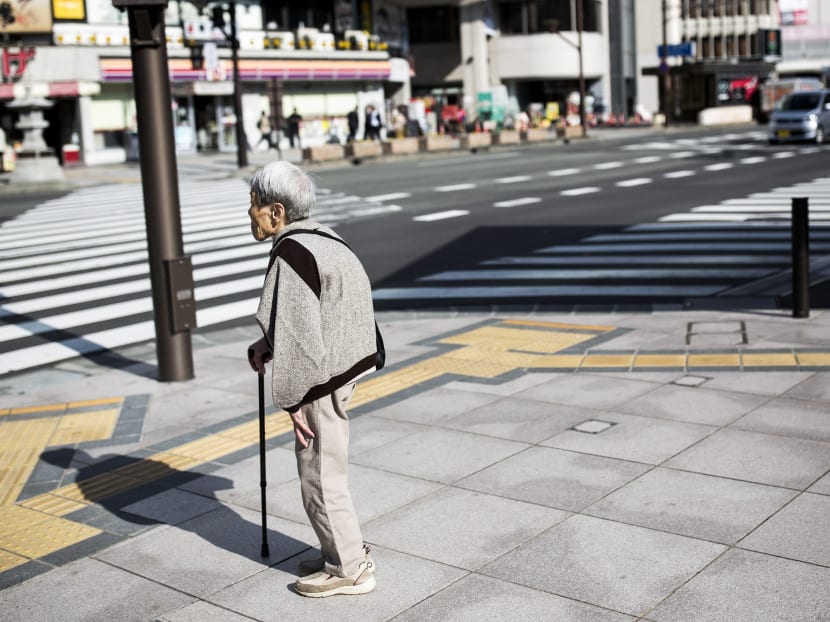Little incentive to care for Japan’s greying population
TOKYO — Japan is the world’s fastest greying country but fewer of its people are choosing to work as care-givers, deterred by the long training hours, onerous workloads and low pay.

A Japanese elderly woman waits for the traffic light to cross the street in Nagano, northwest of the capital Tokyo on November 7, 2016. Photo: AFP
TOKYO — Japan is the world’s fastest greying country but fewer of its people are choosing to work as care-givers, deterred by the long training hours, onerous workloads and low pay.
Japanese government data from 2014 showed that one in four of its population were aged 65 and above, making it the nation with the highest number of seniors.
Some 26 per cent of them live alone and many are afraid to die alone — a situation called “kodokushi”. This proportion is set to rise to 40 per cent in about two decades.
The position of expert care manager was created when Japan introduced a nursing care insurance system in 2000. The job involves designing care plans for the elderly.
Ms Kiyomi Takano, 45, worked as a home-based care manager but quit after five years as her schedule became too much.
Her tasks included visiting elderly clients at their homes once a month, attending meetings and liaising with doctors, nurses, families and private nursing care firms.
“I didn’t know whether I was working for people receiving nursing care services or was just there for the paperwork,” she said. “Medical knowledge and communication skills are also required and I thought I couldn’t do this any longer.”
According to the Ministry of Health, Labour and Welfare, the average monthly wage for care managers last year stood at 255,000 yen (S$3,135) excluding overtime pay – well short of the average of 304,000 yen across all industries.
Those applying to be a care manager must also be certified, having completed 450 hours of compulsory practical training ahead of lessons. These consist of another 87 hours of practical training – up from 44 hours previously.
After peaking at more than 200,000, the number of people applying for care manager certification dropped to 124,000 in the last fiscal year - about 10,000 fewer than in the previous year. In one recent exam the pass rate dropped to a record low of 13.1 per cent.
Mr Moriyasu Nomoto, a senior official at the Japan Care Manager Association, said those who want to be certified must find the time to train outside of their own work commitments. He added: “It is difficult for those who want to be a care manager to take the training at their own expense.”
Mr Junya Ishimoto, chairman of the Japan Association of Certified Care Workers, said: “The exam is now targeting those who really want to become care workers, so we should use this opportunity to boost their skills.”
But former care worker Mr Kazuyo Sakurai, who has written books on the subject, believes the situation shows that society does not value people who work in the caregiving industry.
“If getting a qualification doesn’t lead to an improvement in working conditions, it’s natural that no one wants to take the exam,” he said.
“The lack of care managers will result in a lower quality of caregiving and eventually the burden will be placed on the elderly and their families. Without improving working conditions, we will face a further shortfall in human resources.”
The government has warned that Japan will need one million nurses and care workers by 2025 but opening these jobs to migrant workers is a politically sensitive topic in the country. KYODO NEWS









